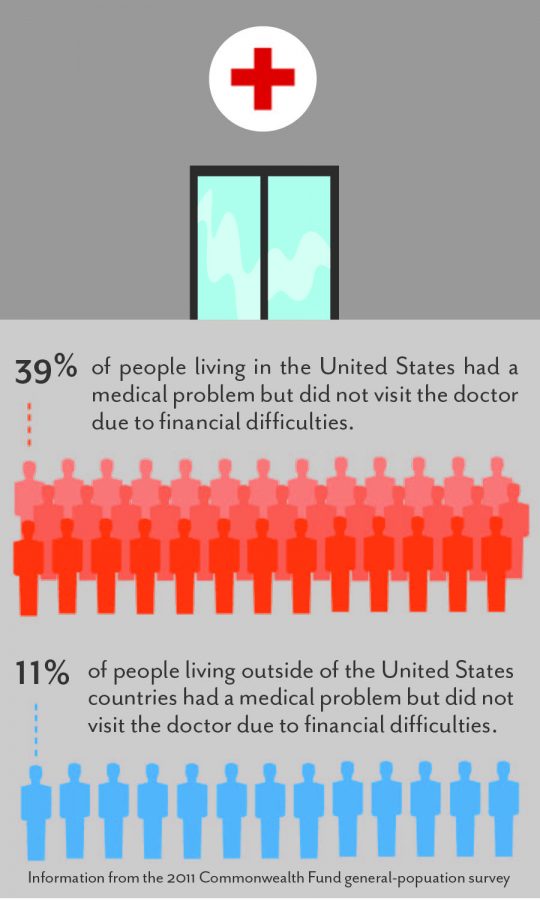US health care system least affordable
November 3, 2014
A recent survey shows that the U.S. health care system ranks last in terms of affordability and accessibility compared to health care systems of other developed nations.
The survey, sponsored by the Commonwealth Fund, was conducted in 2013, prior to the implementation of the Affordable Care Act. The survey compared the U.S. health care system to those of 10 other nations—Australia, Canada, France, Germany, the Netherlands, New Zealand, Norway, Sweden, Switzerland and the U.K.—which have all developed systems of universal health care and ranked higher than the U.S. in terms of accessibility and affordability.
Because the survey was conducted before the ACA’s implementation, it can be used to measure the impact and effectiveness of the act in years to come, according to Karen Davis, a professor of health policy and management at the Johns Hopkins Bloomberg School of Public Health.
“The No. 1 overriding barrier to health care in the U.S. is the absence of health insurance coverage for 50 million Americans [at the time of the survey], followed by the U.S. being the only major country without a universal health insurance system,” Davis said.
The number of uninsured people has been a growing problem in the U.S., Davis said. In 1999, 39 million Americans did not have insurance, and that increased by 11 million uninsured people by the time the survey was taken in 2013.
The number of uninsured Americans has decreased since the ACA was implemented, falling by 8 to 11 million people, Davis said.
Katherine Hempstead, director at the Robert Wood Johnson Foundation, said the ACA was designed to address the poor accessibility and affordability of health care in the U.S. by subsidizing the cost of insurance through tax credits and expanding Medicaid to increase coverage.
“We have seen a big increase in coverage [but also] evidence that utilization is not increasing as quickly as people may have anticipated,” Hempstead said in an email. “There are favorable trends, but there are [also] many remaining questions [about how to improve health care].”
Katie Keith, director of research at Trimpa Group, LLC, said although the ACA has reduced the number of those living without health insurance, there is still a lot that needs to be done to reform the U.S. health care system.
Although many people now have health insurance who did not before, the cost of health care in the U.S. is still so high that it could still be unaffordable for some, Keith said.
“It’s a little bit like putting a Band-Aid on some of the cost problems [of the U.S. health care system],” Keith said.
Low-income people are most affected by the costs of health care in the U.S., according to Davis. She said that to make health care even more accessible after the implementation of the ACA, she thinks more information needs to be provided by health insurance exchanges about which doctors participate in new plans, who is accepting new patients and where people can go for care.
Davis said the survey also found that it is common for Americans to have more difficulty finding care on nights and weekends compared to other nations. Many countries, such as the Netherlands, have developed health care systems in which patients can still receive off-hours care, and they all ranked higher than the U.S. in terms of accessibility, she said.
“Flexible hours or clinics that are open on evenings or weekends can make a difference by just making it easier for people to find a time that is convenient to them that they can receive care,” Davis said.
Keith said she thinks there are a lot of misconceptions in the U.S. about what universal health care looks like in other countries and that the survey also helps to clarify some of the confusion.
“People think that there are these long waiting lines and it’s really Draconian,” Keith said. “Yeah, maybe sometimes you have to wait for a specialist in the U.K. or Canada, but you’re waiting for much longer in the U.S. to get a primary care physician.”








